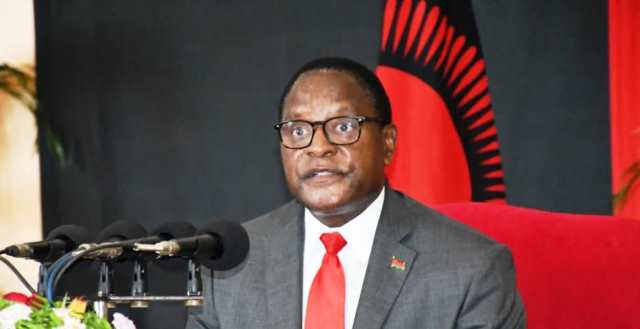UDF queries govt on revenue sources
Opposition United Democratic Front (UDF) yesterday asked government to explain to Malawians how it will generate revenue to finance its growing expenditure needs in the 2021/22 National Budget.
Reacting to the State of the Nation Address (Sona) President Lazarus Chakwera made in Parliament last Wednesday, leader of UDF in the House Nedi Poya also asked government to explain how it plans to reduce domestic debt which, as at December 2020, had skyrocketed to K2.7 trillion or 31 percent of the country’s national output as measured by gross domestic product (GDP).
He said: “The mighty UDF wants an assurance on how Tonse government will match declining revenue inflows with increased expenditure…We also want government to come out clear on how it will reduce domestic borrowing and government should be firm on the timeline.”

In the face of Covid-19 pandemic, Treasury has struggled to generate more revenue as most sources have dried up due to the pandemic, with some big companies closing shop while others resorting to retrenchingtheir staff to survive the turbulent economic environment.
Treasury has in recent years intensified borrowing using long-term instruments called Treasury notes which have been criticised by experts for being expensive to taxpayers despite lengthening the maturity of domestic debt, thereby providing a little breathing space to government.
As at end December 2020, out of the domestic debt stock of K2.7 trillion, 83.31percent were Treasury notes
Poya also quizzed government to explain the process surrounding the establishment of the Debt Retirement Fund which is set to be operationalised in the 2021/22 fiscal plan.
The idea of introducing the fund was first announced by Finance Minister Felix Mlusu when he presented the Tonse Alliance maiden budget on September 11 2020.
According to Mlusu, the basis for establishing the fund is the recent accumulation of Total Public Debt (TPD) which has exponentially risen to K4.8 trillion or 54 percent of the rebased GDP as at December 31 2020
“This fund should not be abused as we normally salivate when there is money.But also, do we have a model from elsewhere where we can borrow and make sure that this debt fund works?” said Poya.
Poya also requested the Tonse administration to explain how it intends to grow the economy as highlighted in the Sona at a time external shocks such as Covid-19 have affected critical sectors.
He also accused government of turning the Ministry of Agriculture into what he dubbed an “AIP [Affordable Inputs Programme] institution” at the expense of high-impact areas within the agriculture sector such as extension, livestock production and research.
Under the flagship AIP, the Tonse government has invested K142 billion in the first year of implementation, targeting 3.7 million beneficiaries. The budget was trimmed from the initial approved allocation of K160 billion.
In an interview later with The Nation,Poya recalled that in the past, the country used to produce quality seed for groundnuts by Malawi researchers but lamented that such a trend is no longer there.
Speaking separately, Zomba Lisanjala parliamentarian William Susuwele-Banda observed that the Sona is silent on the maintenance of rural roads.
In the Sona, Chakwera highlighted three key areas of food, wealth and jobs which he is banking on to help develop the country in the next four years up until 2025.





